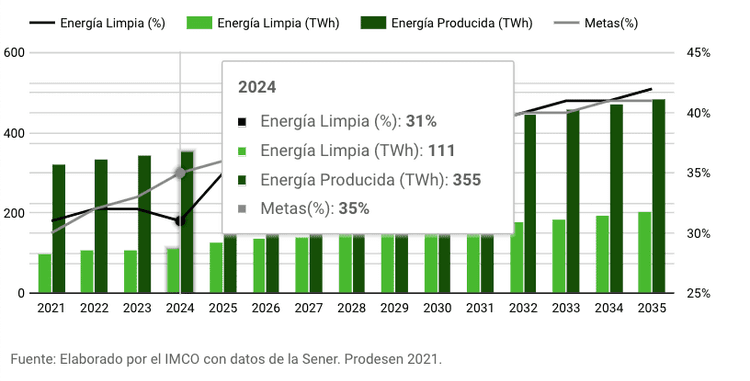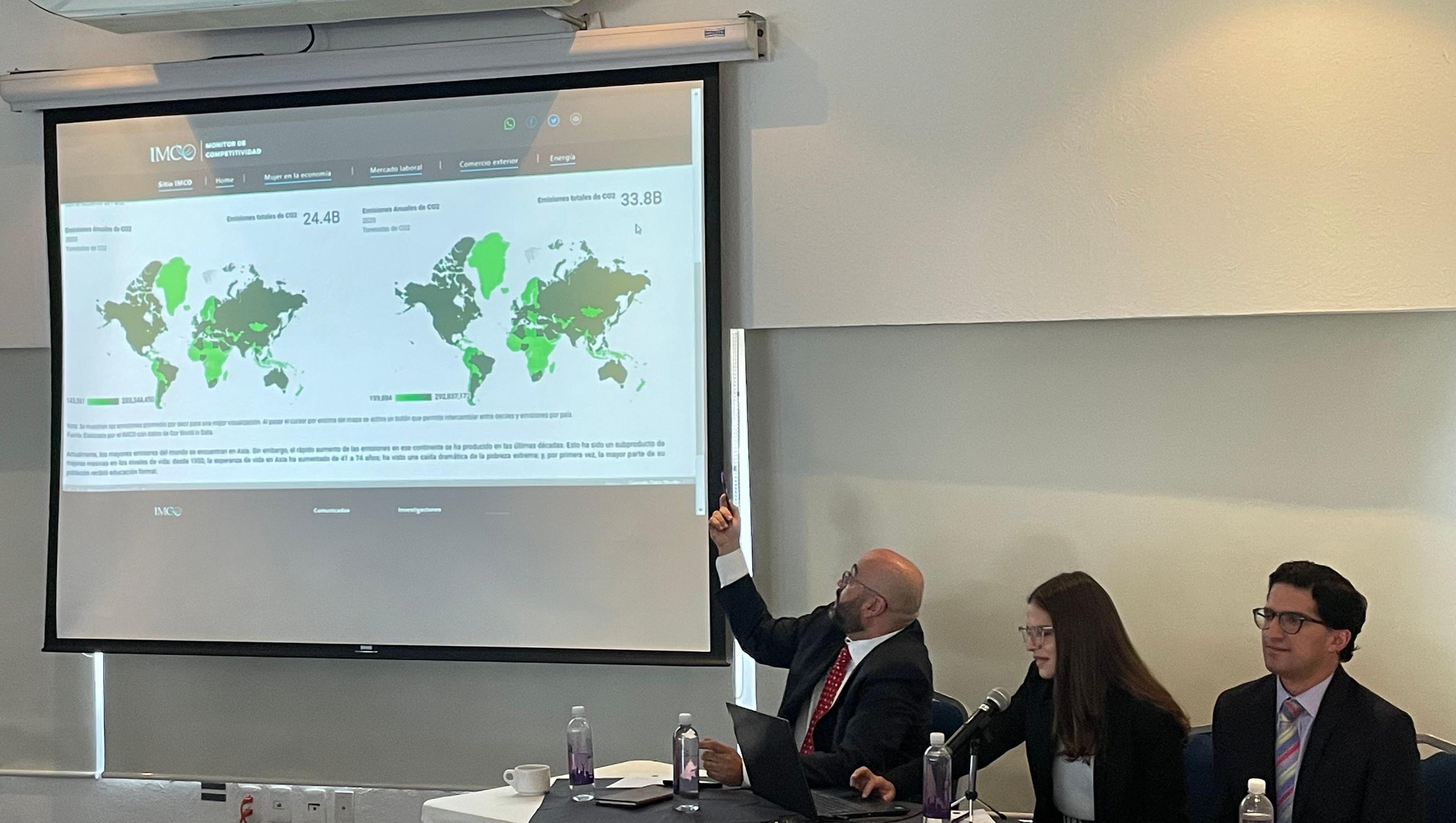If the electric constitutional reform initiative were approved in its current terms, the possibility of having an energy transition of the magnitude that Mexico needs would be canceled, said the Mexican Institute for Competitiveness, A.C. (IMCO).
“If the initiative is approved, the energy transition is canceled, because on the one hand, a large part of the renewable energies already installed would stop being injected into the grid, and on the other hand, the investment possibilities of actors other than the CFE (Federal Electricity Commission) would be canceled,” said Óscar Ocampo, energy coordinator of the IMCO, in an interview with Journalism Causa Natura.
President Andrés Manuel López Obrador's constitutional reform proposal was presented on September 30, 2021 and has become a focus of debate between those who see the dismantling of what was achieved in the previous energy reform of President Enrique Peña Nieto and those who support the strengthening of a predominant role of the public company Federal Electricity Commission (CFE) in energy generation compared to private energy.
“If the Constitution is not amended, these companies end up taking over the entire electricity market and what is happening now in Spain would happen to us, because electricity rates for the user are through the roof,” López Obrador said on October 11.
During the presentation of the IMCO Energy Monitor, an increase in the share of renewable energies was highlighted from 21% to 27.5% between 2018 and 2021.
However, this will be insufficient for Mexico to meet its international commitment to reach 35% by 2024.

According to a new forecast from the Program for the Development of the National Electricity System (Prodesen) of the Ministry of Energy, these would have reached 31% by that year, the Monitor highlighted.
Asked at what point Mexico was unable to meet the goal derived from the Paris Agreement, Ocampo highlighted the cancellation of electrical auctions. The fourth long-term auction was canceled in February 29, 2019 by the federal government.
“I would tell you that the timing is very clear, the cancellation of the auctions, the fourth long-term auction was scheduled for 2018 (and then suspended), in February 2019 it is canceled. Auctions are a mechanism for attracting investment,” said Ocampo.
The expert compared what was achieved by the auctions against what was done by the CFE.
According to data provided by the head of the Energy Secretariat, Rocío Nahle, in December in the Chamber of Deputies to the sector commission, there were 5,825 megawatts installed out of 6,769 allocated in the sum of solar and wind energy; on the other hand, the CFE's Puerto Peñasco project will reach 1,000 megawatts by the end of 2028.
“That size was the success (of the auctions) and that was the pace at which the deployment of renewable energy in Mexico slowed down,” said Ocampo.
The IMCO specialist said that the CFE cannot promote the energy transition in the country alone, nor could a single company do it, so an openness to private investment is required.
He highlighted solar and wind energy as clean energies that can promote an energy transition because they are more affordable. According to the Monitor, the generation costs of power plants with this type of green energy are 82% lower compared to CFE plants that operate with fossil fuels.
“Today the CFE is simply not competitive today, that could change, but today it's not,” said Ocampo.
This week, the Supreme Court of Justice of the Nation (SCJN) must hear two constitutional controversies and one unconstitutional action against the reform of the Electricity Industry Act presented in February 2021. This law, derived from a reform, was an attempt prior to the constitutional reform to modify the electricity sector; the law was suspended by a judge in March 2021, until its repercussions were determined.
On the other hand, the United Commissions on Constitutional Points and Energy in the Chamber of Deputies have passed the initiative of constitutional reform to the plenary without substantial changes. Morena needs 57 votes from opposition parties for the proposal to be submitted to the Senate.
CO2 per capita
The IMCO Energy Monitor also highlighted that CO2 emissions per person in Mexico are at the levels of countries with the highest amount of greenhouse gas emissions in the world.
“Between 1970 and 2020, Canada, France, Russia and the United States reduced their per capita emissions and Mexico increased by 25.1%,” highlights the Monitor.
Per capita CO2 emissions in Mexico reached their highest point in 1990 at 3.78 metric tons and in three decades they fell to 2.77 in 2020.
“In general terms, there is a technological evolution that allows for fewer emissions. That doesn't mean that Mexico is doing well because, as we have seen, Mexico is not going to meet its international commitments,” said Ocampo.
Regarding the Energy Monitor initiative, the IMCO highlighted the interest in providing reliable data to the public.
“The main added value is the consolidation of a series of data collected in Cenace, CRE, CFE, Secretariat of Energy, in an accessible, processed, graphically attractive and easy to download form, allowing media and companies to have reliable, timely and up-to-date information on the energy sector,” said Ocampo.



Comentarios (0)